Strictly Personal
Nigerian social register – A genius idea or mere self-delusion? By ‘Tope Fasua
Published
9 months agoon
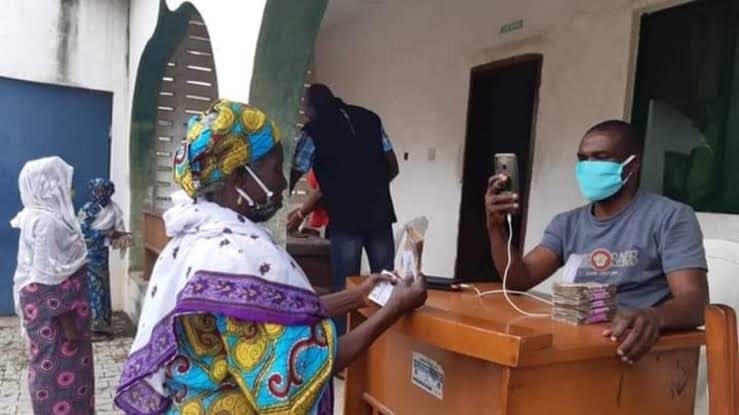
Still, on the subject of Nigeria’s social register, people like me had expressed cynicism about its veracity for several reasons when the Federal Government had attempted to rely on this register for the purpose of cash transfer to 12 million families with a view to targeting about 60 million people. I offered instead that if the World Bank loan must be taken and spent to ASSUAGE IMMEDIATE issues caused by the very bold reforms embarked upon by the Tinubu administration, the government should rather consider a food purchase and distribution program which means that governments should purchase from local farmers and distribute to deficit units around the country. This will help in opening up our rural areas and releasing the spurt of growth that Nigeria requires, eradicate post-harvest losses, put money in the hands of farmers in exchange for goods, thereby increasing productivity and the GDP, target improved nutrition for children around the country, encourage the building of infrastructure to these rural areas, catalyse the government’s food security policy, and reduce food inflation, among other benefits. I showed evidence of what was being done in this regard in capitalist countries so that no one will call it a socialist idea.
On another occasion, I have pointed out that perhaps our government does not need to go a-borrowing, certainly not for the purpose of providing palliatives for our millions of poor people who have been displaced even more by the recent biting neo-liberal policies. There is an organisation called the National Social Insurance Trust Fund (NSITF), which by its name was established for the purpose of providing social insurance for Nigerians that are down on their luck. Every year, this fund collects a percentage of the profits of every tax-paying company. At every point in time, chances are that the fund sits on trillions of Naira for which it has no genuine purpose, having deliberately moved away from its set objective of social insurance. What we hear from that agency is stories of corruption and embezzlement. The new administration should show seriousness in going after this organization and getting it to perform its set duties – and not what it now claims to do (providing money for workers who have accident ON THE JOB). NSITF has fraudulently twisted its objective to serve a few factory workers who bother to make claims on it. It serves a handful of people every year but collects money from hundreds of thousands of companies. Every management team that has been appointed in the last two decades seem to have gone insane the moment they see the amount of money they sit on in their bank accounts, and promptly proceeded to help themselves. Almost all have been sacked for financial malfeasance. And Ministers of Labour have used the NSITF – which is meant to be our own social protection like the British DOLE system, as slush fund.
And it is not only the NSITF sitting on money. There are many parastatals, known and unknown, who are sitting on huge stashes collected from taxpaying Nigerians, but whose management are cavalierly “largessing” on such funds with the connivance of government at the highest level. Rather than run cap in hand from World Bank to IMF, collecting toxic loans that will not augur well for the country and its people, I urge the government to look into these funds and commence immediate placation of the people of Nigeria. I understand that somewhere in Adamawa State people started looting warehouses. The administration should not forget the lessons of ENDSARs too quickly. We should understand that the people have tasted blood – they have looted and got away with it in the past. It was sweet for many. They have even faced up to law enforcement agents and liquidated a few. God forbid that they plan a repeat of October 2020, or someone instigates them to it. Opposition will of course do whatever it takes to discredit the government (any wonder why we are hearing about Adamawa?). But Tinubu should not give a desperate opposition grounds for exploiting the anger of the people. It cannot be couched in sweet words; the reformed are rather harsh, and too rapid. I particularly think the Naira floating policy is a terrible policy coming so soon after the fuel deregulation. I think Nigeria was conned by smart alecs who had since taken position with the US Dollar. Now it looks like the policy may unravel. Sad.
But some folks who were at the centre of the World Bank-led effort to collate a social register protested rather subtly after the governors, led by Professor Chukwuma Soludo also dismissed the idea of this National Social Register. A few of them have offered explanations as to how this register was collated and the painstaking effort which to them may have resulted in what they believe is a sound document. They explained how the register was developed from the ground up, depending on state government and how the World Bank was involved. They speak about a transparent process. I quote from Mr Waziri Adio, former Director General of Nigeria Extractive Industry Transparency Initiative (NEITI), who wrote in Premium Times on the said topic:
“The starting point for identifying the poor and the vulnerable in each state is the Nigeria Living Standards Survey (NLSS) conducted by the National Bureau of Statistics (NBS). The NLSS contains comprehensive socio-economic and demographic data and is used by the state teams to identify the areas with high incidence of poverty in each state. This is the geographic approach for targeting used for the social register… The second layer, and the core of the process, is Community-Based Targeting (CBT) where the task of identifying the poor and the vulnerable households in the different communities is devolved to the community members. This participatory process is led by a CBT team, usually made of a community development officer, a National Orientation Agency (NOA) officer, an agricultural extension officer, a women/social development officer and two enumerators… The CBT teams are divided into two groups: targeting officers and enumerators. The targeting officers handle the interface with the communities while the enumerators collect the required data on the households. The teams follow a four-step process: pre-sensitisation visits, sensitisation and mobilisation, community engagement and actual enumeration… The last stage is Proxy Means Testing (PMT) where data gathered by the enumerators is used to create a proxy of incomes and needs of the households and to rank them into deciles of the poorest and the most vulnerable in each community. All these are done at the state level before being transferred to the NSR. It is clear that some thought actually went into designing the process and the methodology of putting the register together… As at the last count, the NSR covers 748 of the 774 LGAs in the country, 174, 406 communities, 15.67 million households, and 62.69 million individuals in the country. The 15.67 million households covered so far represent the poorest of the poor, not all of the poor in the country.”
From this extensive quote of the effort by Mr Adio to enlighten our publics, it looks like a fairly good job was done in trying to put together a register. But when we stand back and consider what had been presented, a few questions cannot but pop into mind:
Why had the register not been made public? Some people raised an issue about privacy when I asked this question somewhere else. I asked them whether people who are so poor such that N5,000 monthly will matter to them would care about privacy… except if they are obtaining such money by false pretense. Of course, going by the INEC register, which if fraught with errors, irrelevancy, and massive falsification, Nigerians are right to believe that any register emanating through or by government will be designated for fraud and falsified. We do have a serious trust deficit between government and the people and so any government must be prepared to work extra clean and extra hard to regain credibility.
Why did we have to depend on World Bank again? As much as we too do not trust ourselves to do the right thing – even in government – we also cannot ignore the fact that the objectives of the World Bank and other such agencies may not align with ours. Recall that I wrote in my last published writeup that the WB wanted us to give cash to the people on this social register – a policy that has now been stepped down.
If this social register is so good, why are we not leveraging on it to spend much less for our upcoming national census. If the team so put together has been able to go round the country and collated 63 million poor people who are even more difficult to get to submit to any form of documentation, would it not be considered that the hardest part of a census job has been already concluded and now we may then collate the numbers of well-to-do folks and add up? Why are we hearing of humongous amounts to be budgeted for national census? Research showed that in the year 2021 World Bank approved a loan of $800 million for Nigeria, from which the census was done and from which the recent handouts were supposed to be taken. Are we saying the massive world-breaking register was done from that same loan, with enough left to distributed to 60 millions souls through 12 million families, N8,000 monthly and more left for the National Assembly and National Judicial Commission to share on their luxuries.
From what the proponents of the register have said, the register had been used as point of contact with 12 million FAMILIES who were getting cash transfers very constantly since then. But if such an amount has been disbursed consistently in spite of its paltriness to that number of people in a solid register, by now it ought to have trickled down massively and created a major buzz in the economy. My people say you cannot but recognise the passing by of an elephant. Trickles of water make a massive pond. Why are the people still angry and hungry?
The collated figure of 69 million people in the register should be correlated with our other databases. We have 90 million Nigerians registered for National Identification Number (NIN), 96 million in INEC’s dirty register from which they delist no names – not even those who died 20 years ago, and 56 million in BVN. These numbers have made people like me doubt Nigeria’s much touted 210 million population. In all of that, how was Nigeria able to record only 25.3 million voters in a keenly contested election, twenty years after we recorded 42 million for the same election?
Development professionals like to say ‘if you cannot measure it, you cannot improve it’. But counting ourselves and presenting reliable statistics has always been our problem in Nigeria. If anyone said we have a great database somewhere, it ought to be examined and celebrated so long as we can answer some of the above questions. But when I listened to the Borno State coordinator of the social investment program, Aisha Umar, on TV, she said at the last mile, a load of cash is taken by the team referred to above, to be disbursed to people in the bush who have non account. This is contrary to the claims of Reverend David Ugolor of ANEEJ (a consultant involved in the same problem), who said that they have achieved 80% financial inclusion meaning that everyone has an account. Many things just do not smell right.
But while we are still struggling to figure things out, and considering the fact that we really do need to move swiftly to comfort our people, I will still proffer my own option around raiding some of Nigeria’ slush funds like the NSITF and others, and also considering a food distribution program that patronises our farmers, empowers them, reboots our economy right from the base, converts a moment of disadvantage into one of great advantage, aside from creating millions of new jobs. And we don’t need as loan to do that. N500 billion divided into 774 local government for this food program translates to N645 million per local government. Imagine such cashflows getting into the hands of our farmers? Imagine how many more people will rush home, back to their farms? Imagine how much more prestigious it will be to be a farmer? Imagine the eradication of post-harvest losses in the land? And it is not every local government that is rural anyway. Many are urban and will not need that much intervention in the agric sector. Honestly, it’s time to think again and create a new economy from the base.
You may like
-
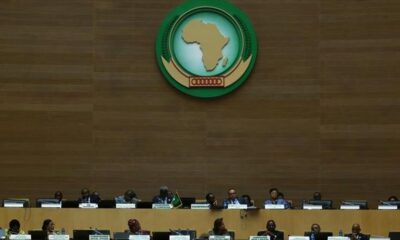

AU shouldn’t look on as outsiders treat Africa like a widow’s house, By Joachim Buwembo
-
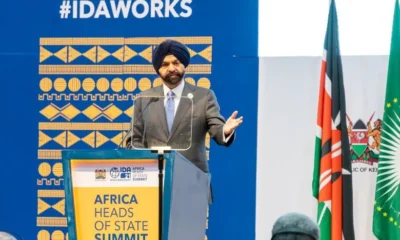

In 64 years, how has IDA reduced poverty in Africa? By Tee Ngugi
-


This Sudan war is too senseless; time we ended it, By Tee Ngugi
-


Air Peace, capitalism and national interest, By Dakuku Peterside
-


This is chaos, not governance, and we must stop it, By Tee Ngugi
-


Off we go again with public shows, humbug and clowning, By Jenerali Uliwengu
Strictly Personal
AU shouldn’t look on as outsiders treat Africa like a widow’s house, By Joachim Buwembo
Published
3 hours agoon
May 9, 2024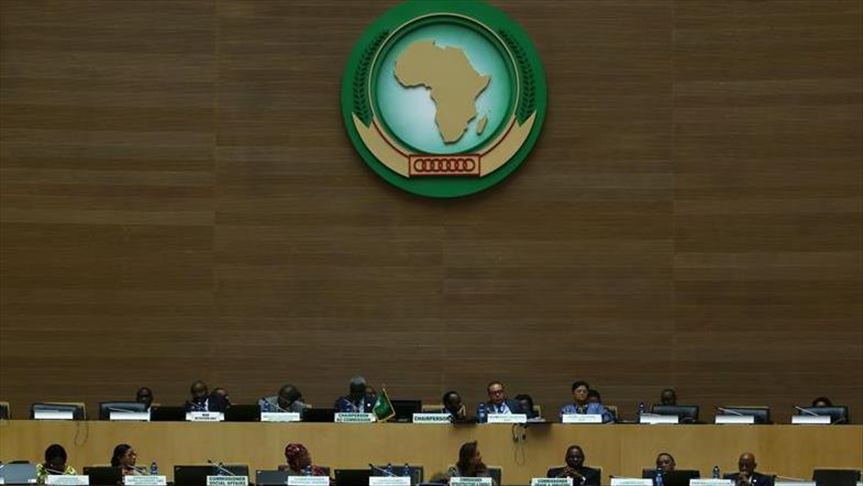
There is no shortage of news from the UK, a major former colonial master in Africa, over whose former empire the sun reputedly never set. We hope and pray that besides watching the Premier League, the managers of our economies are also monitoring the re-nationalisation of British Railways (BR).
Three decades after BR was privatised in the early to mid-nineties — around the season when Africa was hit by the privatisation fashion — there is emerging consensus by both conservative and liberal parties that it is time the major public transport system reverts to state management.
Yes, there are major services that should be rendered by the state, and the public must not be abandoned to the vagaries of purely profit-motivated capitalism. It is not enough to only argue that government is not good at doing business, because some business is government business.
Since we copied many of our systems from the British — including wigs for judges — we may as well copy the humility to accept if certain fashions don’t work.
Another piece of news from the UK, besides football, was of this conservative MP Tim Loughton, who caused a stir by getting summarily deported from Djibouti and claiming the small African country was just doing China’s bidding because he recently rubbed Beijing the wrong way.
China has dismissed the accusation as baseless, and Africa still respects China for not meddling in its politics, even as it negotiates economic partnerships. China generously co-funded the construction of Djibouti’s super modern multipurpose port.
What can African leaders learn from the Loughton Djibouti kerfuffle? The race to think for and manage Africa by outsiders is still on and attracting new players.
While China has described the Loughton accusation as lies, it shows that the accusing (and presumably informed) Britons suspect other powerful countries to be on a quest to influence African thinking and actions.
And while the new bidders for Africa’s resources are on the increase including Russia, the US, Middle Eastern newly rich states, and India, even declining powers like France, which is losing ground in West Africa, could be looking for weaker states to gain a new foothold.
My Ugandan people describe such a situation as treating a community like “like a widow’s house,” because the poor, defenceless woman is susceptible to having her door kicked open by any local bully. Yes, these small and weak countries are not insignificant and offer fertile ground for the indirect re-colonisation of the continent.
Djibouti, for example, may be small —at only 23,000square kilometres, with a population of one million doing hardly any farming, thus relying on imports for most of its food — but it is so strategically located that the African Union should look at it as precious territory that must be protected from external political influences.
It commands the southern entrance into the Red Sea, thus linking Africa to the Middle East. So if several foreign powers have military bases in Djibouti, why shouldn’t the AU, with its growing “peace kitty,” now be worth some hundreds of millions of dollars?
At a bilateral level, Ethiopia and Djibouti are doing impressively well in developing infrastructure such as the railway link, a whole 750 kilometres of it electrified. The AU should be looking at more such projects linking up the whole continent to increase internal trade with the continental market, the fastest growing in the world.
And, while at it, the AU should be resolutely pushing out fossil-fuel-based transportation the way Ethiopia is doing, without even making much noise about it. Ethiopia can be quite resolute in conceiving and implementing projects, and surely the AU, being headquartered in Addis Ababa, should be taking a leaf rather than looking on as external interests treat the continent like a Ugandan widow’s house.
Buwembo is a Kampala-based journalist. E-mail:buwembo@gmail.com
Strictly Personal
In 64 years, how has IDA reduced poverty in Africa? By Tee Ngugi
Published
2 days agoon
May 7, 2024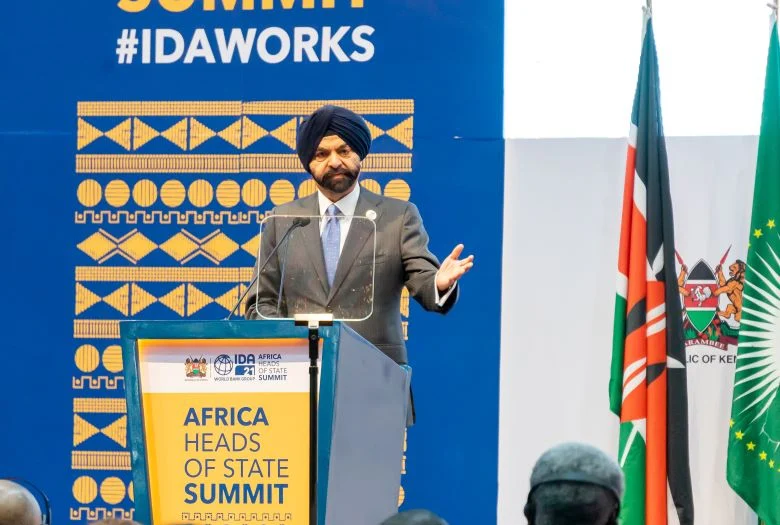
The name of the organisation is as opaque as a name can get: World Bank’s International Development Association (IDA).
I had never heard of it. And suppose I, who follows socioeconomic developments that affect Africa, had never heard of it until last week when it convened in Nairobi. In that case, likely, only a handful of people outside those who serve its bureaucracy had ever heard of it.
Maybe IDA intends to remain shadowy like magicians, emerging occasionally to perform illusions that give hope to Africa’s impoverished masses that deliverance from poverty and despair is around the corner.
So, I had to research to find out who the new illusionist in town was. IDA was founded in 1960. Thirty-nine African countries, including Kenya, are members. Its mission is “to combat poverty by providing grants and low-interest loans to support programmes that foster economic growth, reduce inequalities, and enhance living standards for people in developing nations”.
It’s amazing how these kinds of organisations have developed a language that distorts reality. In George Orwell’s dystopian novel, Nineteen Eighty-Four, the totalitarian state of Oceania devises a new language. “Newspeak” limits the thoughts of citizens of Oceania so that they are incapable of questioning whatever the regime does.
Let’s juxtapose the reality in Africa against IDA’s mission. Africa has some of the poorest people in the world. It contributes a paltry two percent of international trade. It contributes less than one per cent of patents globally.
The continent has the largest wealth disparities in the world. Millions of people across Africa are food insecure, needing food aid. A study has indicated that Africa is among the most hostile regions in the world for women and girls, because of residual cultural attitudes and the failure of governments to implement gender equality policies.
Africa has the largest youth unemployment rate in the world. Africa’s political class is the wealthiest in the world. Africa remains unsustainably indebted. The people who live in Africa’s slums and unplanned urban sprawls have limited opportunities and are susceptible to violent crime and natural and manmade disasters.
As speeches in “Newspeak” were being made at the IDA conference, dozens of poor Kenyans were being killed by floods. These rains had been forecast, yet the government, not surprisingly, was caught flatfooted.
So in its 64-year existence, how has IDA reduced poverty and inequality in Africa? How has its work enhanced living standards when so many Africans are drowning in the Mediterranean Sea trying to escape grinding poverty and hopelessness?
As one watched the theatre of leaders of the poorest continent arriving at the IDA illusionists’ conference in multimillion-dollar vehicles, wearing designer suits and wristwatches, with men in dark suits and glasses acting a pantomime of intimidation, and then listened to their “Newspeak,” one felt like weeping for the continent. The illusionists had performed their sleight of hand.
Tee Ngugi is a Nairobi-based political commentator
EDITOR’S PICK
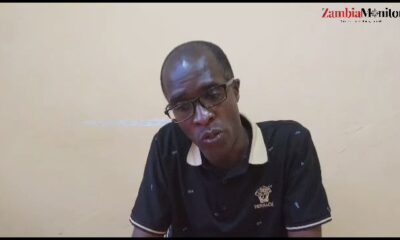

Disability rights group says Cyber Security Act protects politicians more than vulnerable citizens
In Kasama, the Disability Inclusion-Friendly Barn Development Foundation, dedicated to addressing the challenges faced by individuals with disabilities, says the...
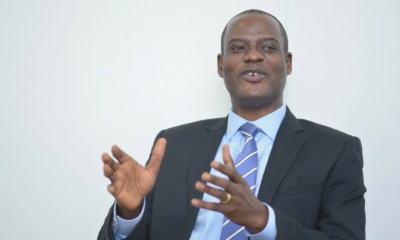

Nigerian govt proposes VAT increase, new sharing formula
Nigeria’s presidential committee on fiscal policy and tax has argued for the necessity of raising the value-added tax (VAT) rate....


Best-to-Worst: Zambian currency hits record low
A shortage of hard cash and a severe drought that has caused power outages in copper-producing Zambia have made its currency,...


AU shouldn’t look on as outsiders treat Africa like a widow’s house, By Joachim Buwembo
There is no shortage of news from the UK, a major former colonial master in Africa, over whose former empire...
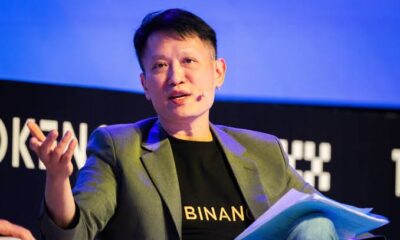

Nigerian govt denies bribery allegation by Binance CEO
The Nigerian government has countered allegations by the CEO of cryptocurrency exchange giant, Binance, Richard Teng, that some government officials...


Fifa honours Mercy Akide, the first African woman to play professional football in the USA
World football governing body, FIFA, has poured encomiums on former Super Falcons star, Mercy Akide-Udoh, who is on record as...
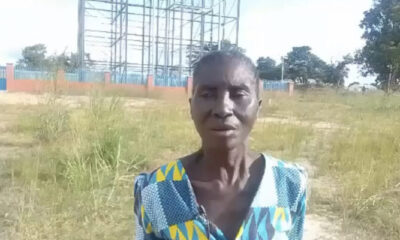

‘Rights must go with responsibilities,’ traditional leader cautions on use of social media
Mansa, Luapula Province: Annette Katema, the Head Woman of Chitumbi Village in Mansa District, voices concerns about the detrimental effects...


Job losses loom as Microsoft set to shut down Lagos tech centre
An estimated 500 jobs are at risk following the decision of United States-based multinational technology giant, Microsoft, to close down...


Nigeria received $1bn tax income from Shell in 2023
Shell Nigeria, a multinational oil company, claims that through the operations of Shell Petroleum Development Company of Nigeria Limited and...


President Tinubu finally returns to Nigeria amid speculations over his absence
After spending the last two weeks out of Nigeria, President Bola Tinubu has finally returned to the country. Tinubu, who...
Trending
-

 Tech23 hours ago
Tech23 hours agoJob losses loom as Microsoft set to shut down Lagos tech centre
-

 VenturesNow1 day ago
VenturesNow1 day agoNigeria received $1bn tax income from Shell in 2023
-

 Sports2 days ago
Sports2 days agoCricket: Bangladesh defeats Zimbabwe by nine wickets to seal T20 series
-

 Tech2 days ago
Tech2 days agoCcHub selects 12 Nigerian startups for 2nd Mastercard Foundation EdTech cohort


